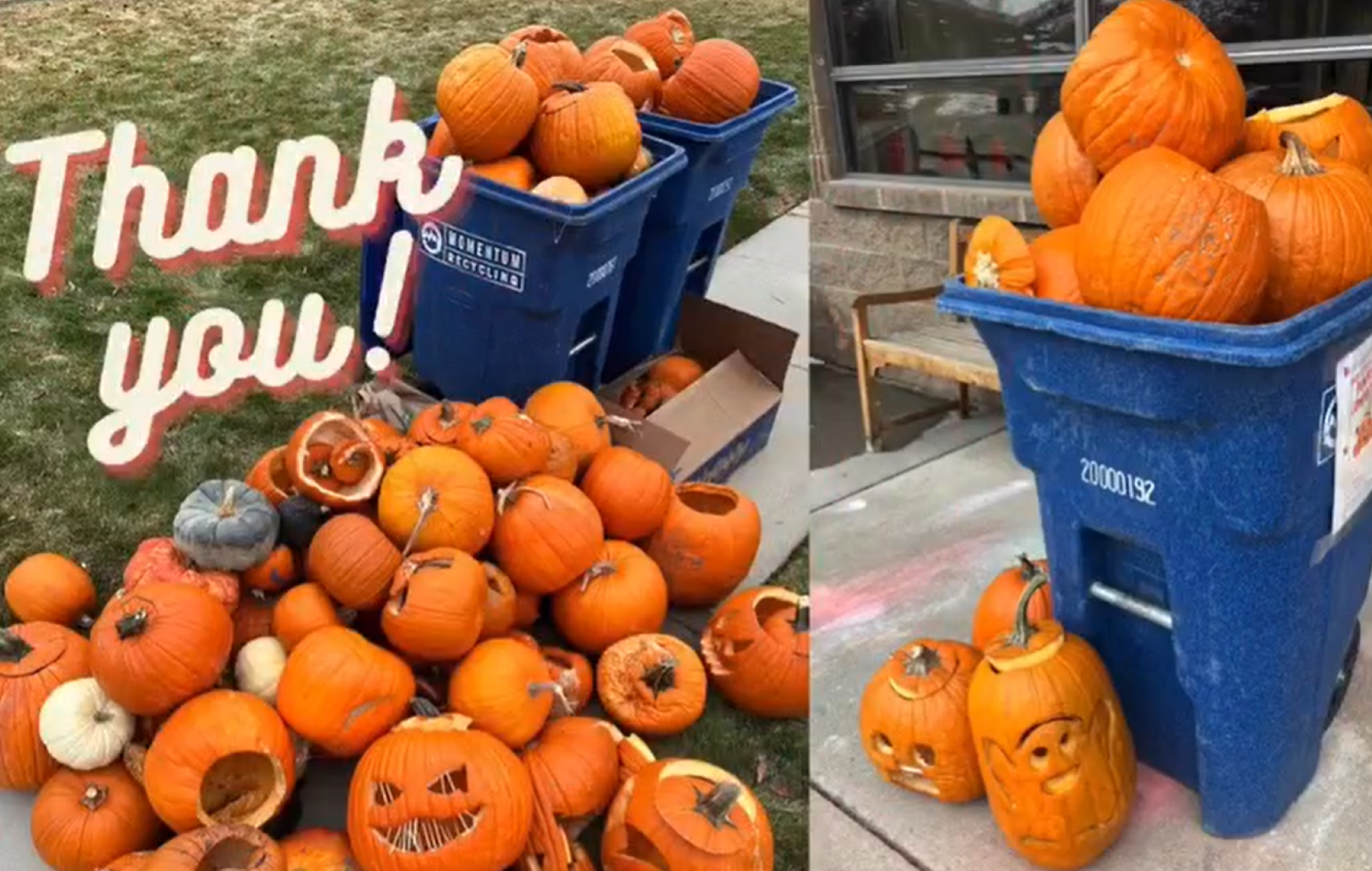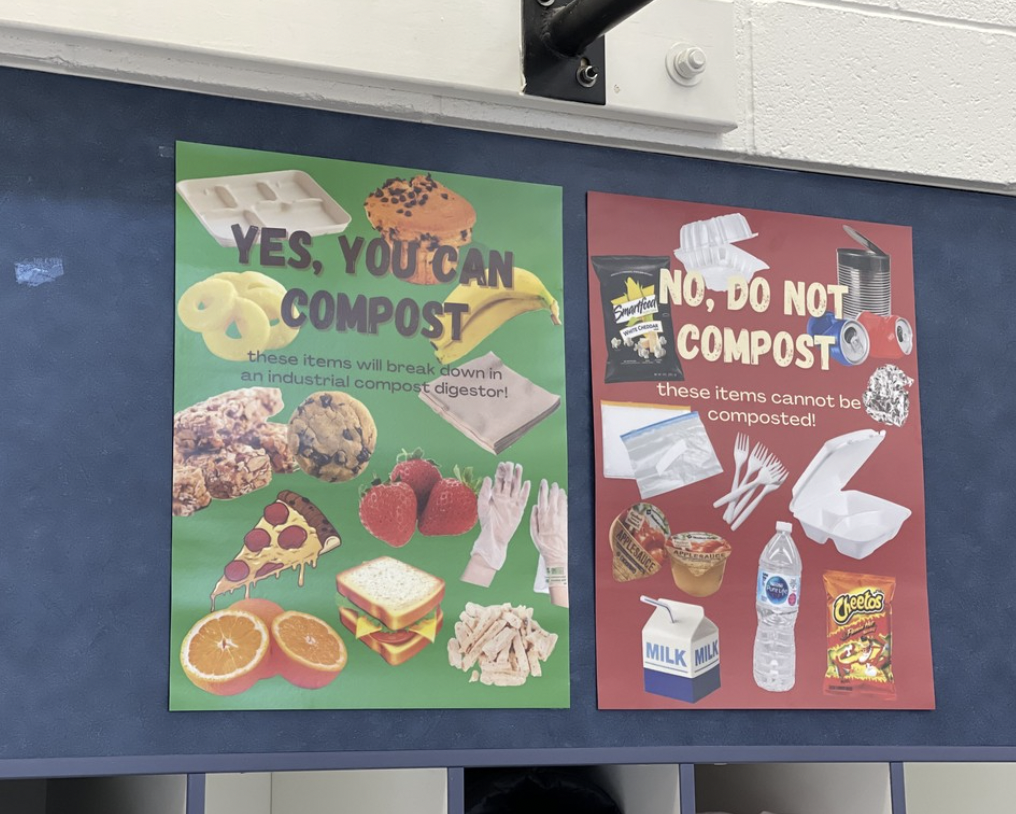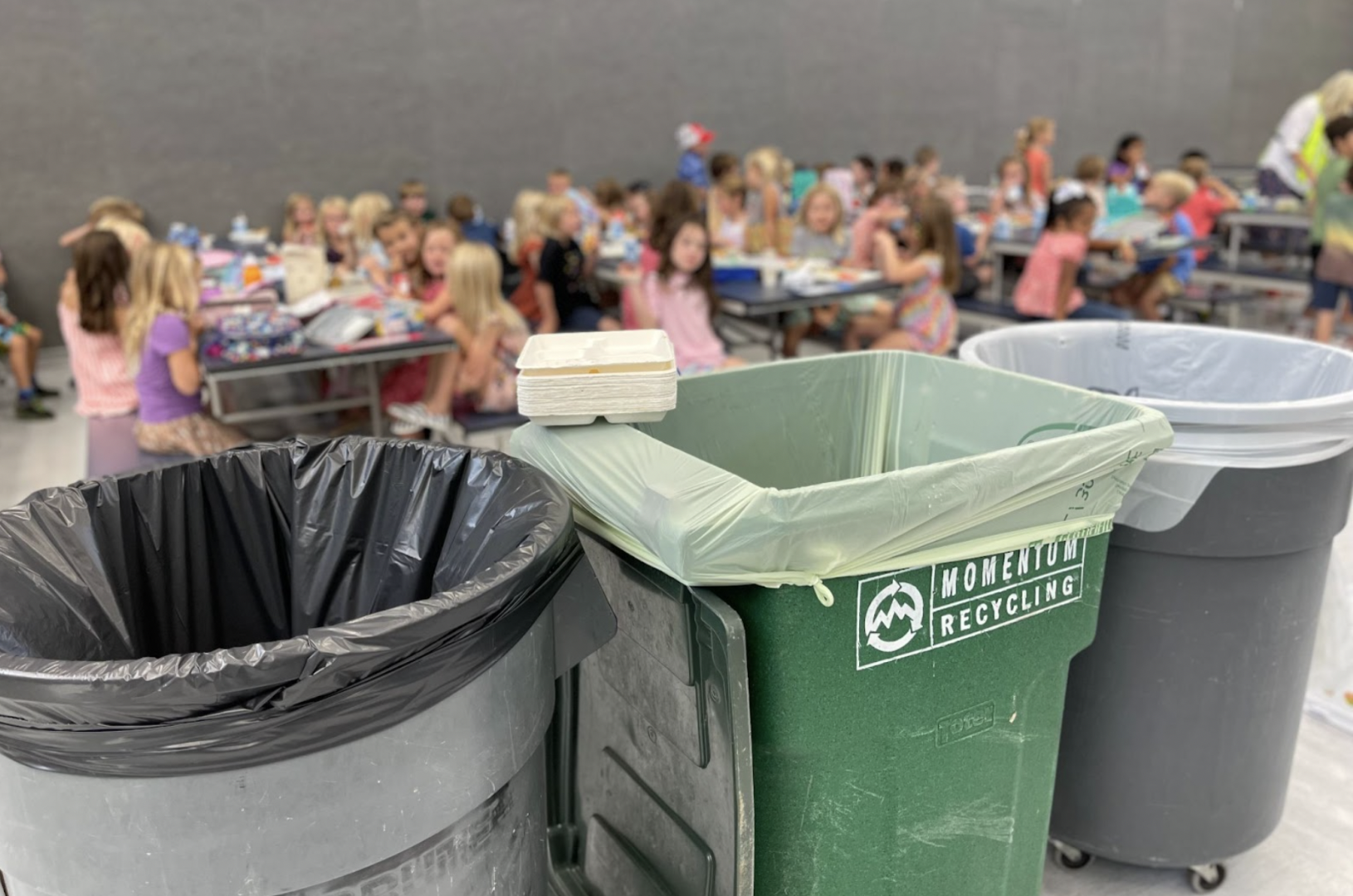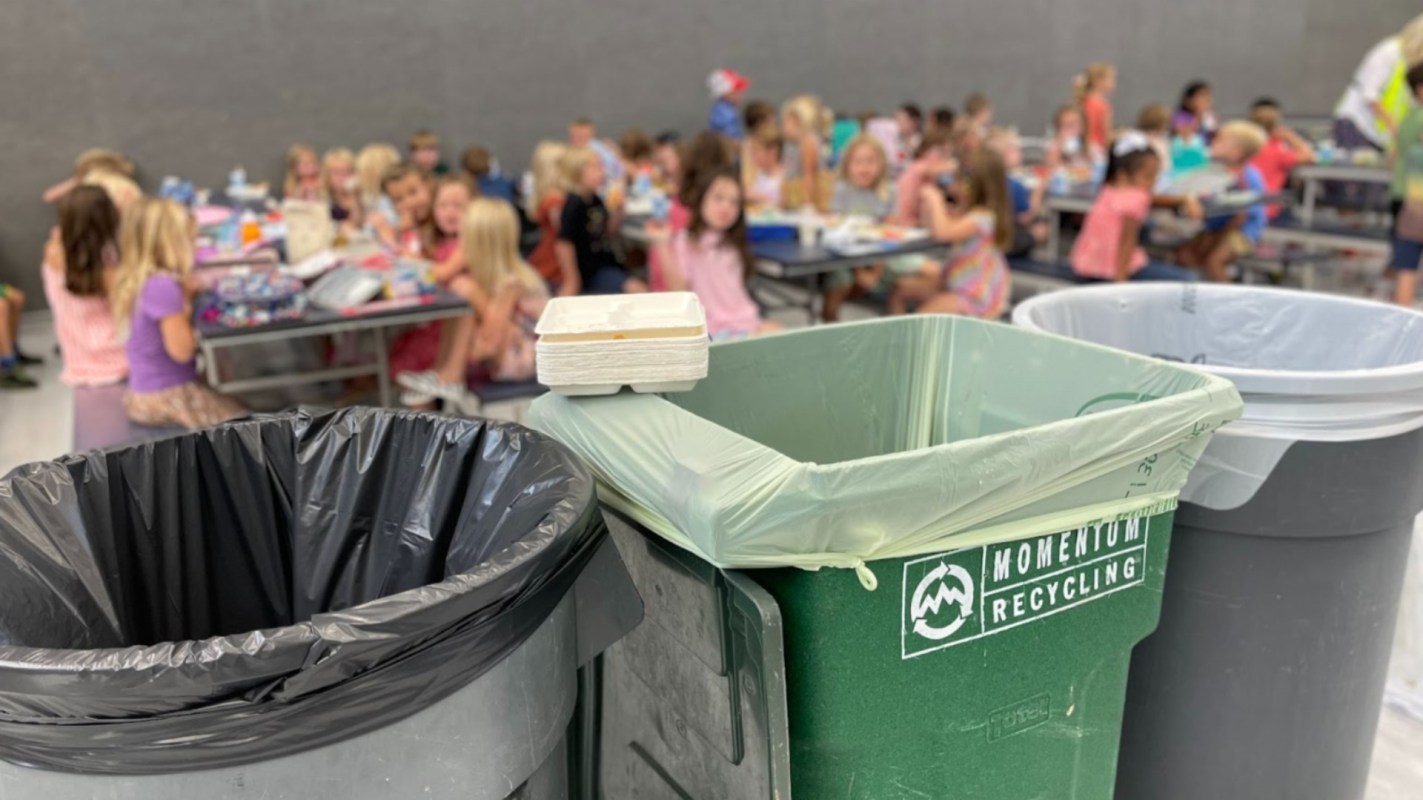Imagine the aftermath of an elementary school lunchtime. Half-eaten pizza slices, bowls of chili, orange segments, and leftover yogurts.
What if all that uneaten lunchroom food could be turned into … energy?
That's exactly what happens each month at our elementary school in Park City, Utah. Each month, our school of 550+ kids prevents an average of 2,500+ pounds of food waste from ending up in a landfill.
Each day, our custodial staff wheels in a green bin alongside our trash cans, lined with a compostable bag. Students dump any leftover food in the compost bin, and it gets wheeled back outside after lunchtime to avoid smells. Once a week the compost gets picked up by a local recycling company and goes to a facility that processes food scraps into sustainable resources like biogas and bio-based fertilizer.
In just a few months, our school composting program has conserved 3.76 metric tons of CO2, the equivalent of 425 gallons of gas consumed, over 9,200 miles driven, and over 4,000 pounds of coal burned.
And just as impressive as those stats is the impact it's had on our school and our community.
The program has created leadership opportunities for our students and educated them about combating the overheating of our planet through reducing food waste.
It's led to home-composting converts as kids come home from school and tell their parents about it. And it has created a ripple effect in our local community – from a new sneaker recycling program to acquiring a rain barrel, from eliminating single-use plastic water bottles from school events to offering a pumpkin composting program after Halloween.
That's how change happens – little by little, community by community.
Our school composting program started with parents like myself asking questions about how our school could be more sustainable. Beyond recycling and encouraging reusables, how could we make a real impact?
A lot of people don't know that food waste is one of the largest drivers of climate change. So reducing food waste can have a big impact. It's not political, not controversial, and it's relatively straightforward.
Here's how we got our program off the ground:
We partnered with local nonprofits and companies

When I heard another school in our community was doing lunchtime composting, I reached out to a local nonprofit, EATS, which was behind the program. They helped us get the program off the ground and coordinated with the local food rescue pickup organization. We also reached out to a home composting program, Spoil to Soil, and secured a discount for families who might want to compost at home.
We got buy-in from the school leadership

When we had a good plan in place, we met with our school principal and assured him that the program would be additive and not disruptive. He appointed a teacher liaison who was passionate about our mission (key!), and he invited us to attend the teacher staff meeting to present the plan.
We educated the kids – and the parents

Our teacher liaison spoke about the program during morning announcements. We made a video and did presentations to explain why we were composting and teach them what could and couldn't be composted. We included informational material in our PTO newsletter for parents.
We got help from other parents

We invited parent volunteers to help oversee the school composting program, which gave them an opportunity to see their kids during lunch. One parent volunteer offered to take all of the unopened food to the local community foundation for those in need each week.
We created a leadership opportunity for students

We used our school composting program to kick off a "Go Green Team" at our school and empowered students to wear green lanyards and help other students sort their food waste. We hosted a celebration for the Green Team members with over 100 kids joining us.
Our school composting program has been a real source of pride for our school and our community and has given kids who face an uncertain future a sense of empowerment.
Thanks to the success of that first school that started composting – and now the model of ours – we've spread composting to nearly every school in our district.
Never doubt the impact a community can have – pizza slice by pizza slice.
Have questions on how to kick off your own school composting program? Feel free to reach out to us at hello@thecooldown.com.
Follow The Cool Down on Instagram and subscribe to our newsletter.







